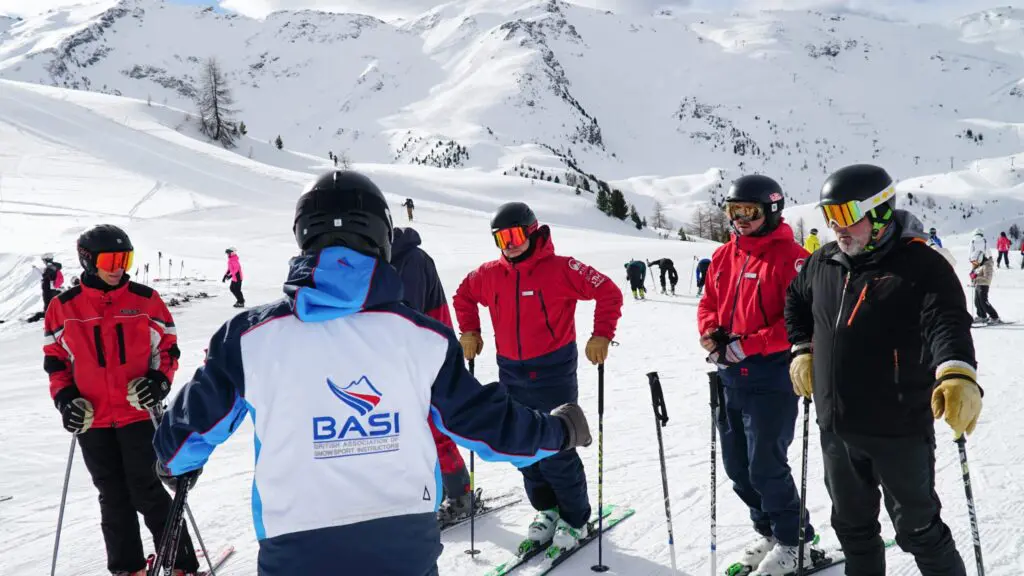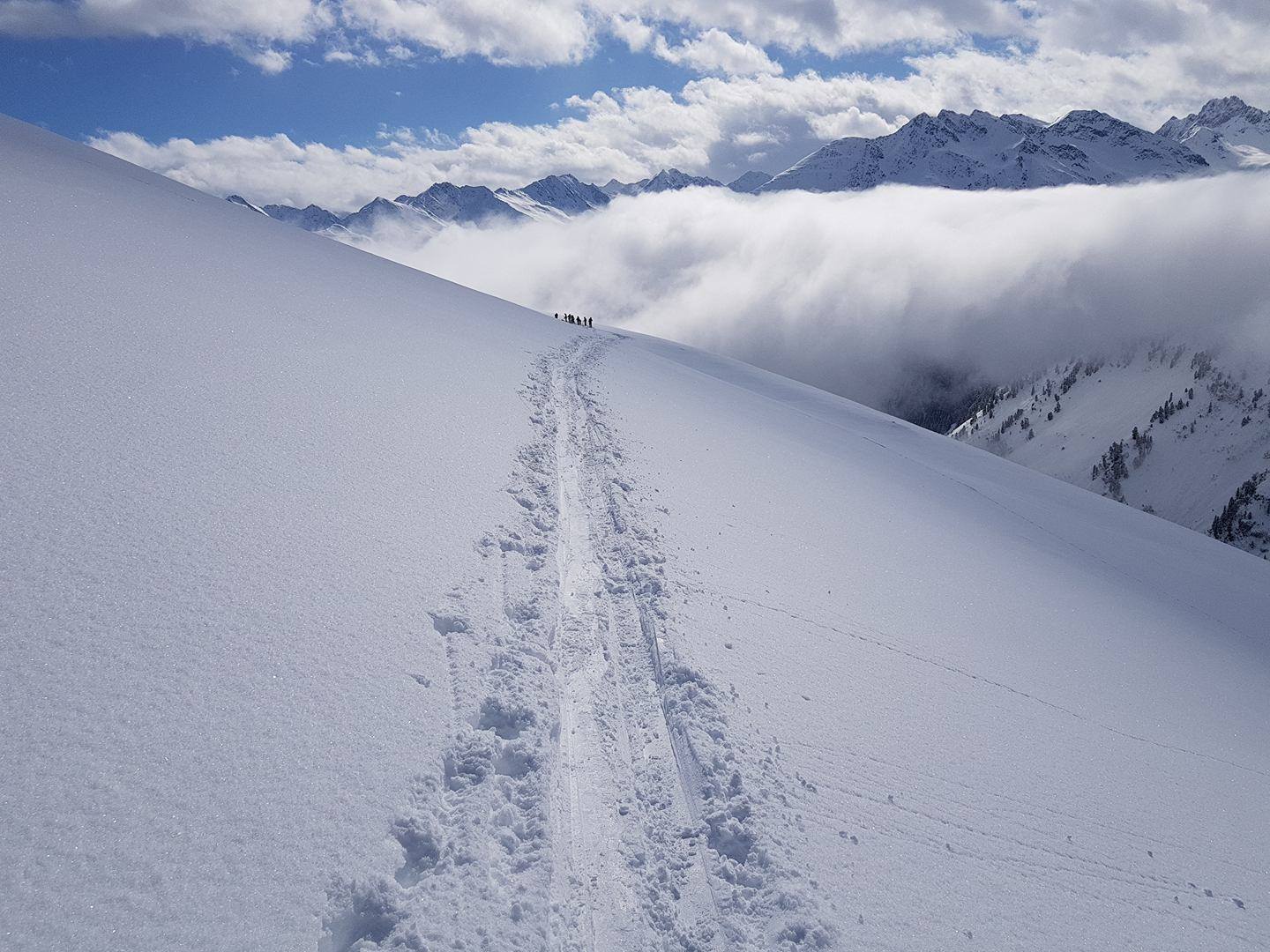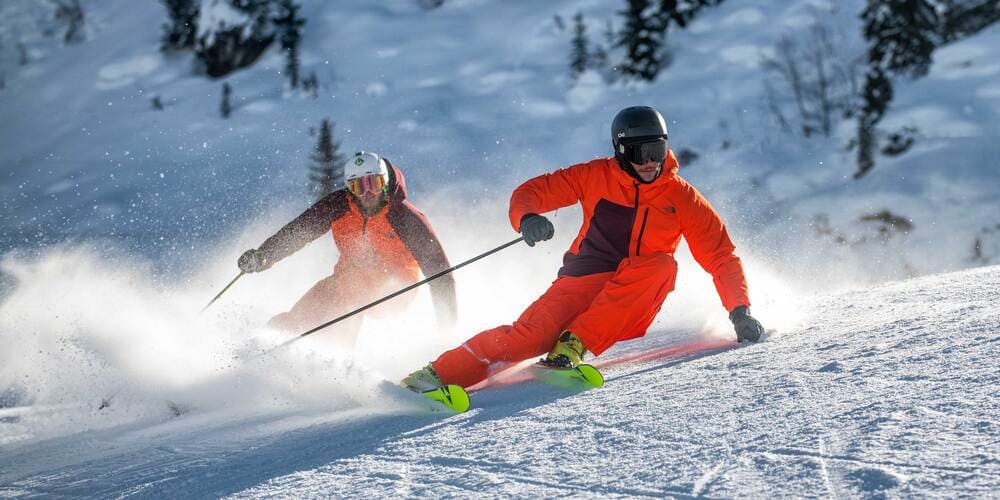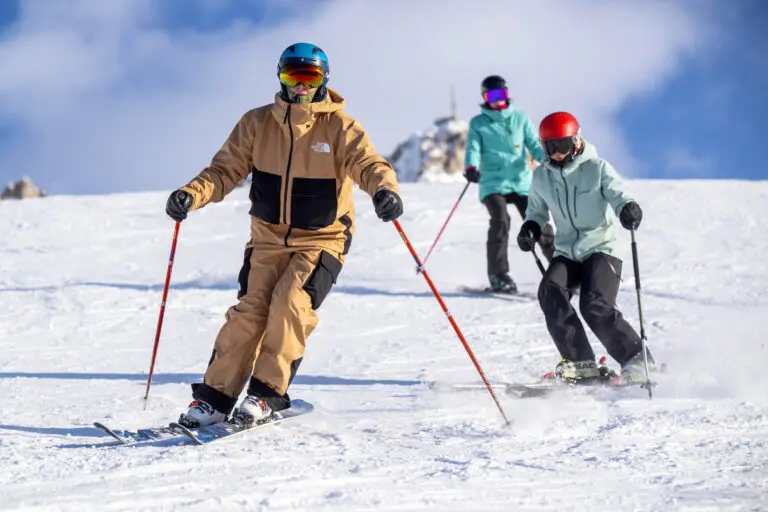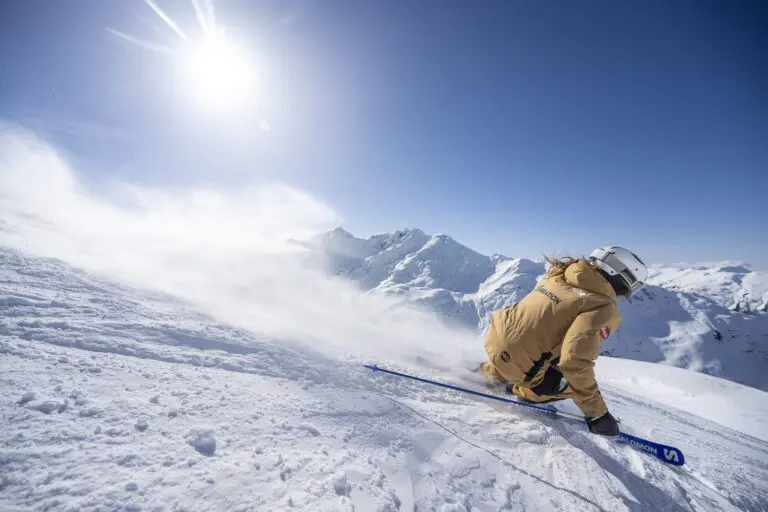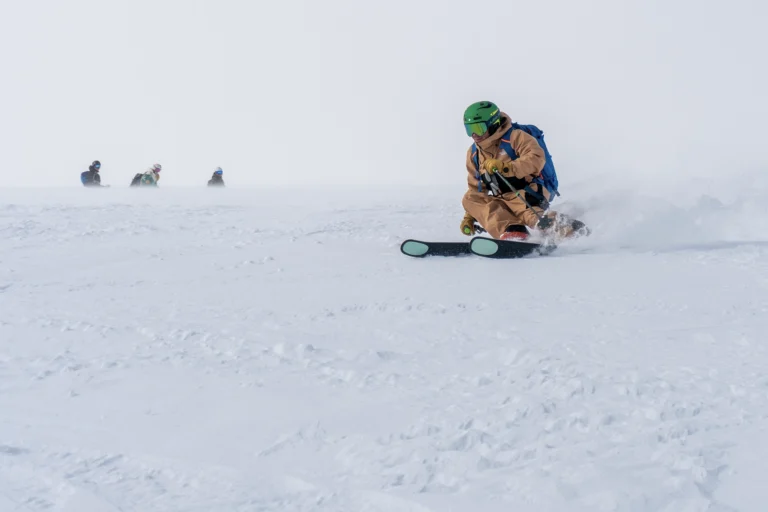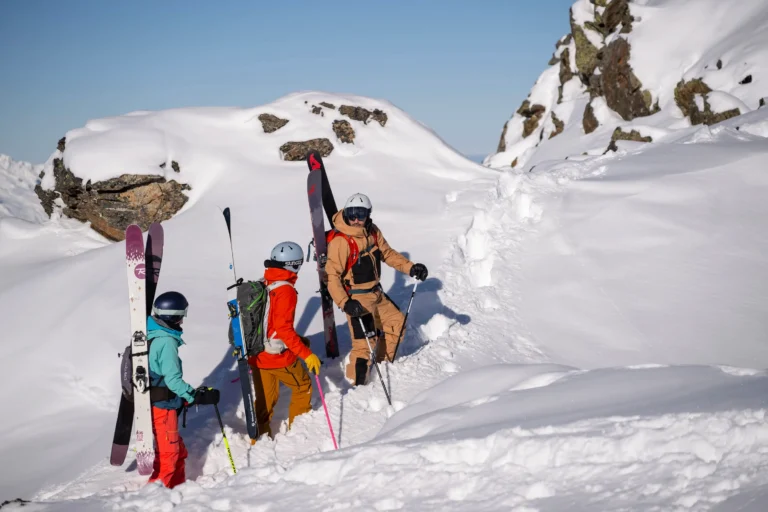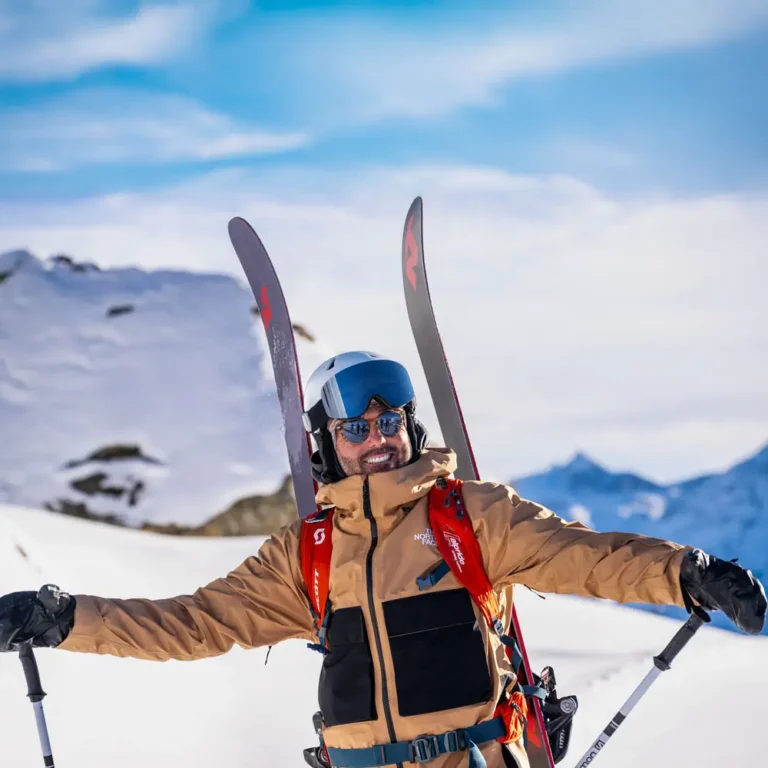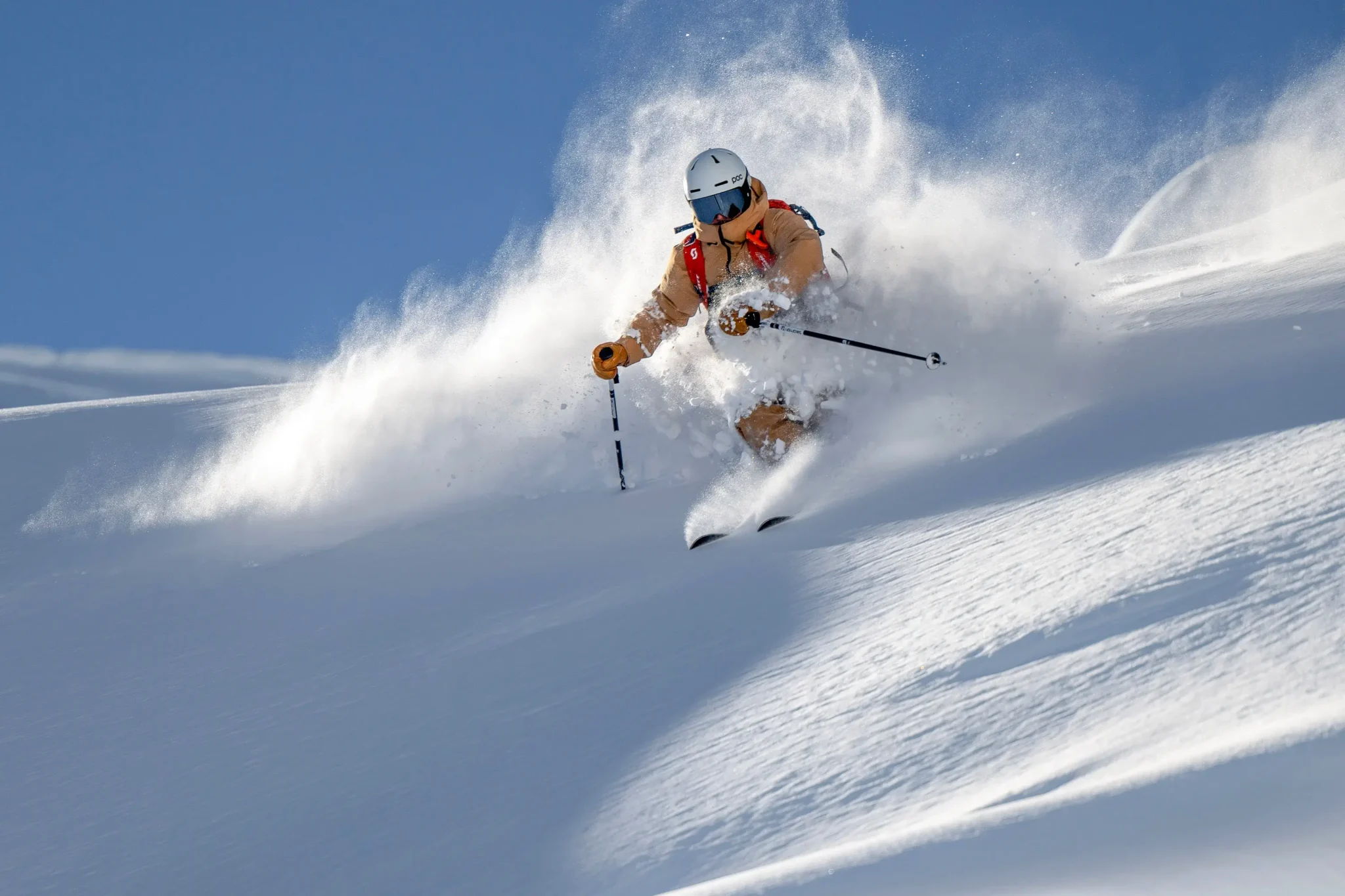BASI Level 4 (ISTD) is the final hurdle before coming fully qualified. The Alpine Level 4 is split up into 10 modules which all need to be completed before gaining your licence to teach at the highest level, anywhere in the world.
The BASI Level 4 (ISTD) Exam
The Level 4 Exam Format:
The Exam Criteria
200 Hrs Teaching Experience
These hours must be completed between the Level 3 ISIA Teaching Course and the start of the Level 4 ISTD Technical or Teaching courses. We recommend the majority of these hours are completed on snow, in a mountain environment. But a max of 35 hours can be completed in an indoor slope or 50 hours from coaching.
Alpine level 4 ISTD Teaching Course
This is an on-snow training and assessment course with lectures and seminars related to teaching. On finishing the 5-day course students must demonstrate the necessary knowledge, ability and understanding to teach skiing to the highest level.
Click here to see the assessment criteria
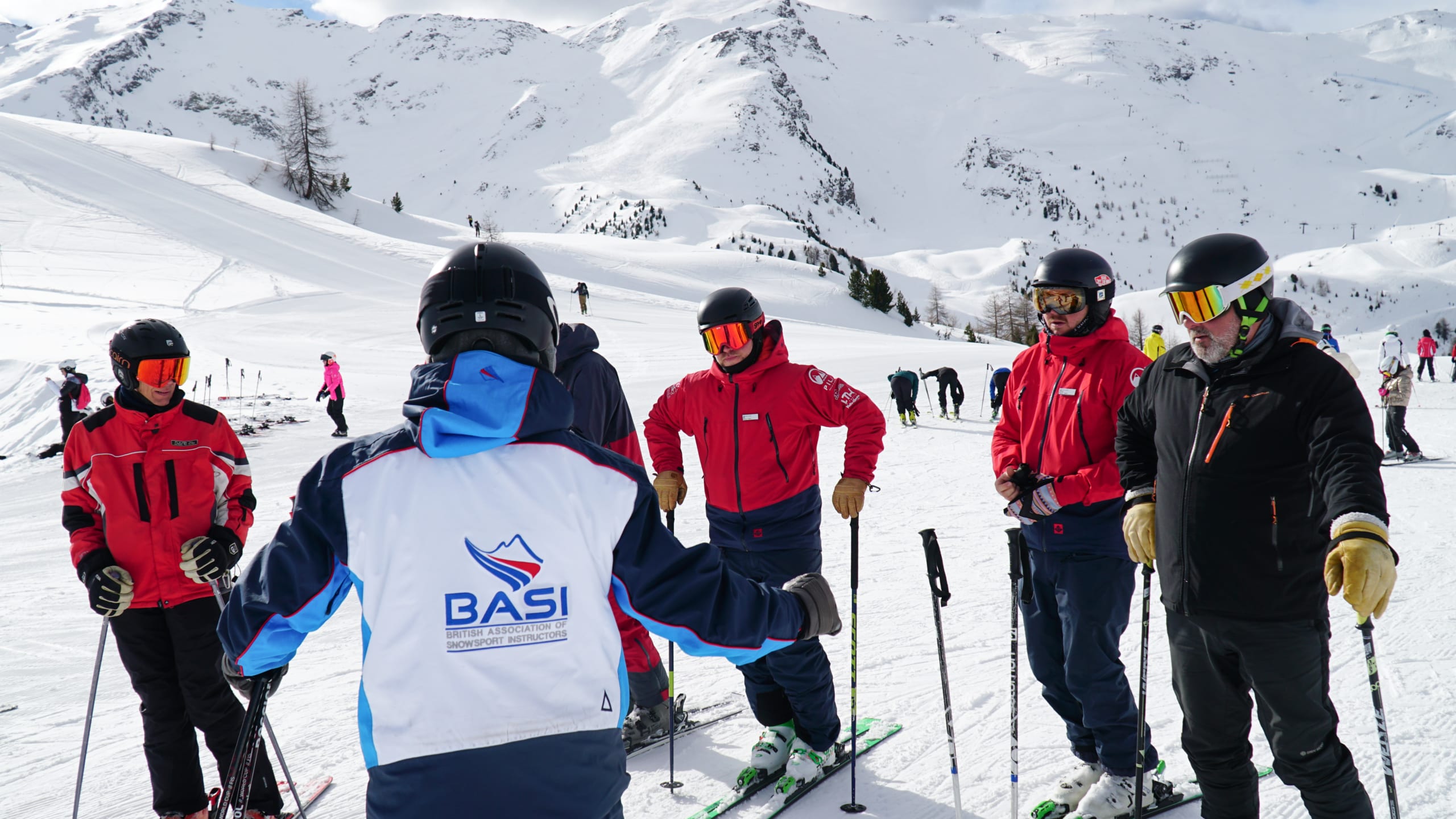
Alpine Level 4 ISTD Technical Course
Also an on-snow training and assessment course with lectures and seminars, but focusing on technical skiing. BASI quotes, “students must demonstrate the necessary knowledge, ability and understanding to teach skiing to the highest level.”
You will be assessed throughout the 5-day course on your technical ability to perform the following:
Piste Short
- Perform grippy (at the fall-line) symmetrical turns, short turns, in various corridors on a black piste
- Show effective posture and balance
Piste Long
- Perform cleanly carved (unless the task is otherwise) turns on a black or steep red piste
- Influence the radius of the arc whilst still carving
- Use effective posture and balance
Variables
- Perform rounded, linked turns in a variety of conditions on a steep black steepness slope
- Show the turns of various radii
- Show a high degree of ski performance
- Use effective posture and balance
Steeps
- Perform rounded linked turns on a terrain that is at least 30 degrees
- Show turns of various radii
- Show a high degree of ski performance
- Use effective posture and balance
Bumps
- Ski a fall-line descent, at or above the minimum speed on a black steepness slope
- Perform a variety of lines and tactical approaches
- Use effective posture and balance
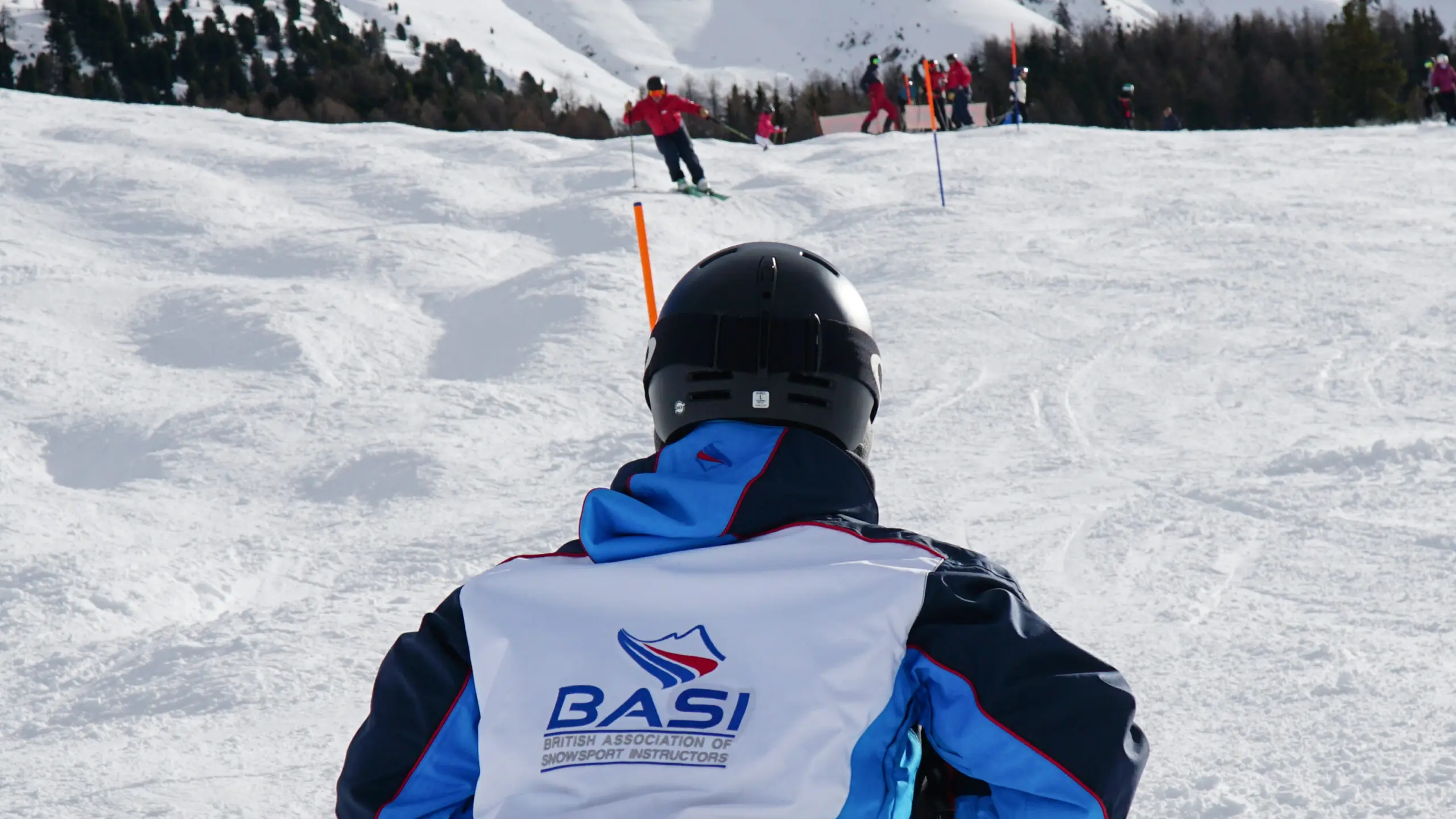
Level 4 EMS Training Course
This is a 4-day training course which progresses from the Mountain Safety course. It trains you to lead tours out of the ski area boundary. Enabling you to deal with all the hazards which can be encountered while on day tours. There will be long days on the hill with big ascents over 1000m, carrying a rucksack. It may be necessary to be on steep, exposed terrain, so be prepared.
The course will train you in the following:
- Snow & avalanche hazard management, including multiple burial search techniques
- Advanced navigation and map work
- Incident management
- Route selection including kick turns & setting a skinning track
- Ropework for security on steep ground
- Mountain awareness i.e. Flora, fauna, glaciology, etc
6 Logged Days Touring
Before attending the 3-day assessment courses, you must have completed a minimum of 6 days of quality day-touring.You must show evidence of:
- Practising the role of leading
- Taking ownership of decision making and navigation
- Map reading
- Snow profiling
- Transceiver searching
- The use of ropes must already be very competent.
Once you’ve logged your tours and presented them in a neat, cohesive way, this can be given to the Guide at the start of the Level 4 EMS Assessment Course.
- Full equipment and reading list
- Level 4 European Mountain Security Log Sheet
- Log Book Guidelines
- Log Book Policy
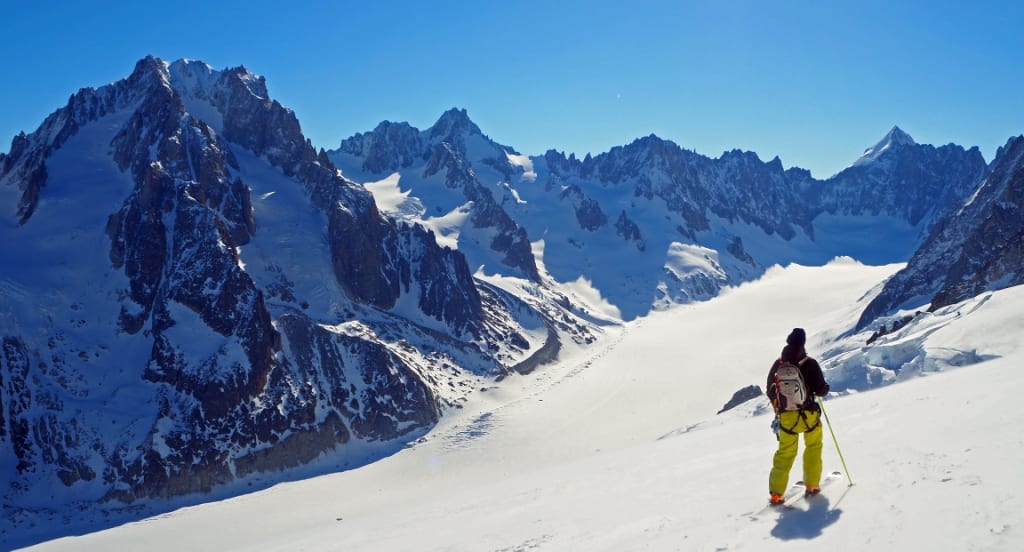
Level 4 EMS Assessment Course (3 days)
This course completes the Level 4 European Mountain Security. This qualification allows you to lead tours consistent with the laws of the country they are in.*
It is a three-day course which may involve one-day using lifts and the other two touring away from the ski area. The tours are big days and may contain up to 1000m of ascent carrying a rucksack. There may also early start to make use of winter’s limited daylight and stay safe before the sun warms certain slopes. You will be assessed in all of the techniques learnt on the training course.
There will also be a written paper on:
- Knowledge of safety
- Off-piste skiing
- Mountain weather and environment
*But these tours must not include glacial travel, the planned use of axe, crampons or rope, any multi-day excursions (using tents, snow shelters, bivouacs, manned or unmanned mountain huts or bothies), or setting out with the intention of leading a group in poor visibility.
Need help planning tours or want to know our tips and tricks to pass your Mountain Safety Exam? Or if you’d like some inspirational ski tours in and around Verbier.
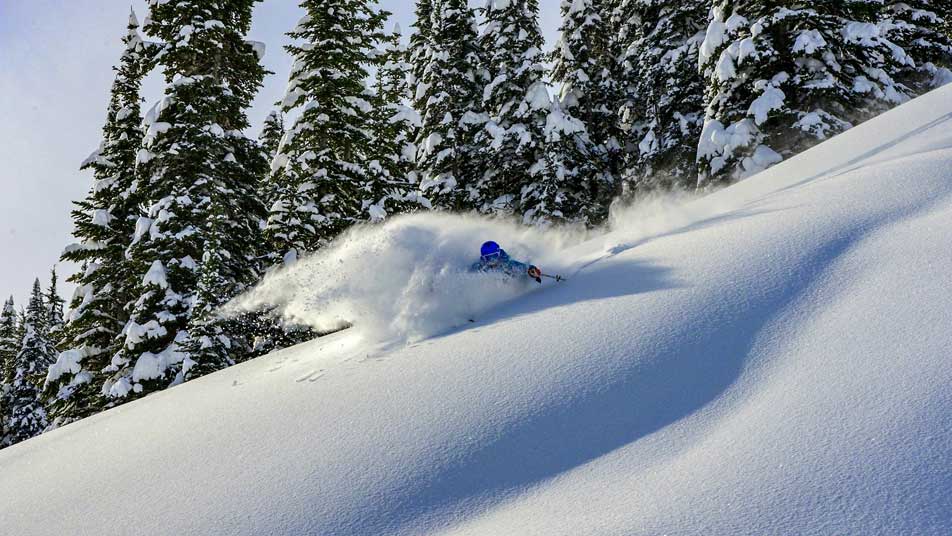
Euro Speed Test
The Euro test is an integral part of the training of ski instructors in France, Italy, Germany, Spain, Austria, Slovenia and the UK. The test is run to strict rules on an international basis and validated by the nation/country in which the test is held.
Essentially, it’s a speed test, which you must complete, within a certain time frame of the openers. You have two runs/attempts at each test day. BASI candidates will be entitled to take part in a maximum of 5 Euro tests per season, so you must plan accordingly. For better insight, read BASI’s blog all about the Eurotest.
We highly recommend taking race training or completing a full season training before taking this test. It can take many attempts, so please only enter when you feel you have a chance at success.
If you have less than 100 FIS points (men) 85 FIS points (women) in a technical discipline (SL and/or GS) during the last five years you are entitled to be exempt from the Eurotest. This exemption once awarded is applicable without time limit.
The Eurotest – the ultimate challenge – read more here
BASI Coaching Course
This five-day coaching course is to enable you to gain sound knowledge and to feel confident in running competition training. This will enable you to take your instruction to the next level.
You can expect to learn, and show competence to:
- Set a course/competition which meets FIS rules
- Set a course which meets a specific training need.
- Technical performance – To descend safely a competition area for an international in a mountain environment whilst carrying equipment. Set up a competition area in accordance to FIS rules or the like.
- Produce a programme verbally and/or in writing for at least two different types of athletes’ (e.g. teenager & Eurotest) winter programmes to comprise training and events, and also includes effective use of strength & conditioning, nutrition and sport psychology
- Verbally and/or in writing, produce a review of own and others performance including accurate feedback on what happened plus why and how the performance can be improved. The review and analysis must cover all parts of the TIED model.
- Verbally and/or in writing, produce reviews of your own and others sessions including accurate feedback on what happened plus why and how the performance can be improved. The review and analysis must cover all parts of the TIED model.
- Verbally and/or in writing, explain the roles of the relevant bodies so that those being introduced to competition would know which body they would need to go to address their specific questions and concerns.
- Verbally and/or in writing, explain the roles of the relevant bodies in relation to self-development as a coach.
Coaching equipment list can be found here 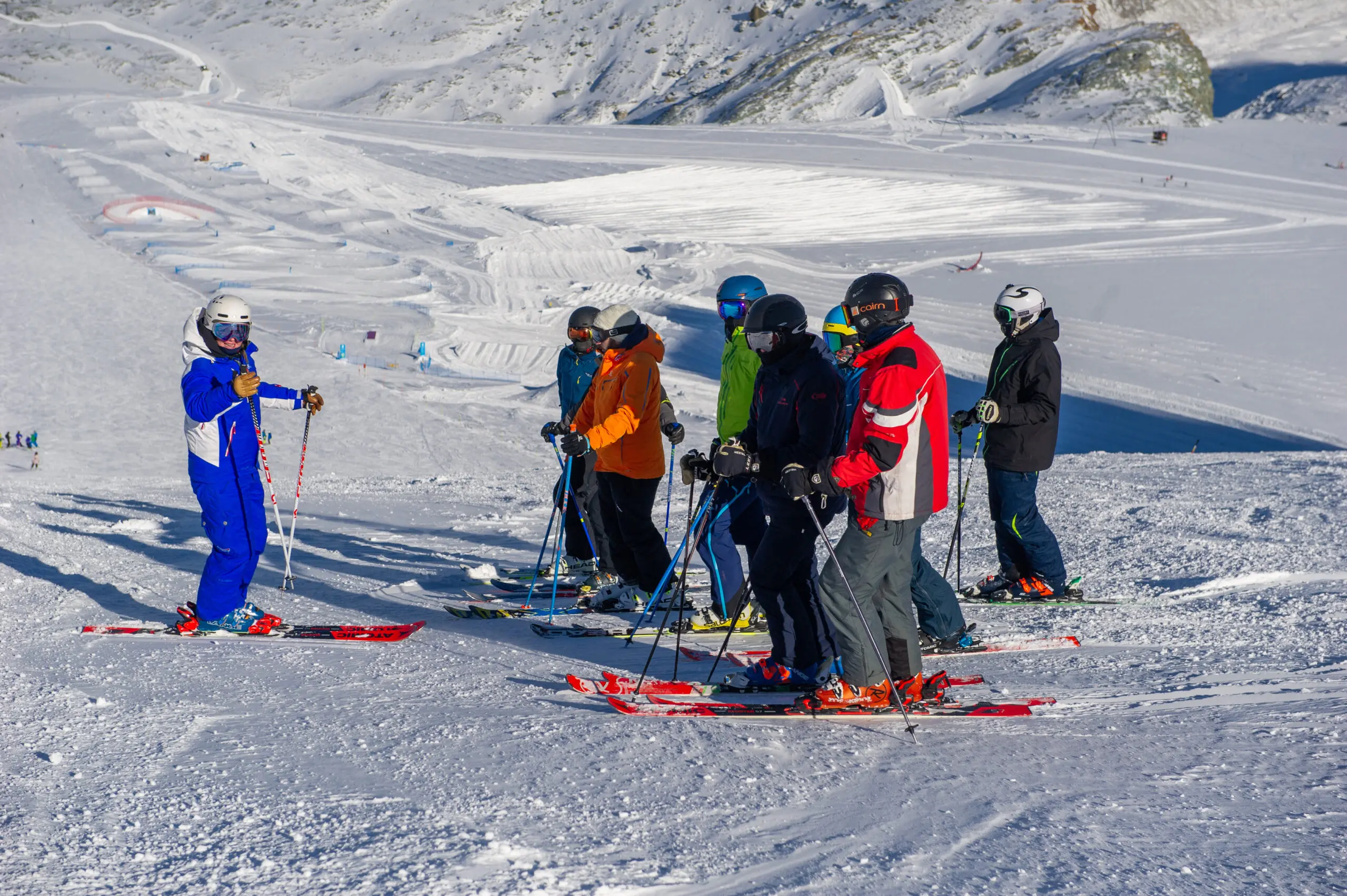
Written Project
You are also required to submit a research project, as part of the Alpine Level 4 ISTD Qualification.
The subject matter for your project needs to relate to the Snowsport industry, but it also needs to be something that would be useful for your peers to read and should relate in some way to the profession of Snowsport teaching. If you are in any doubt about the acceptability of your chosen subject matter, please contact BASI and they can advise you.
It will be marked in the following areas:
- Length (3,000 to 4,000 words)
- Bibliography
- Quality of print
- Grammar
- Presentation
- Layout
- Drawings/diagrams
- Research
- Accuracy
- Originality
- Personalisation
- Conclusion
Once you have completed your written project, send your research project via email to BASI and it will be marked. Marking can take up to 3 months, so they recommend submitting projects in the Summer rather than Winter.
Interview
Last but not least, you will need to attend a final interview on completion of all the modules/courses that form part of the Alpine Level 4 ISTD Qualification. The main objective is to congratulate you on your achievement. You will also be asked to give any feedback to BASI regarding your journey through the BASI system. The interview will give you a chance to ask any questions you may have and is likely to take between 5 and 15 minutes.
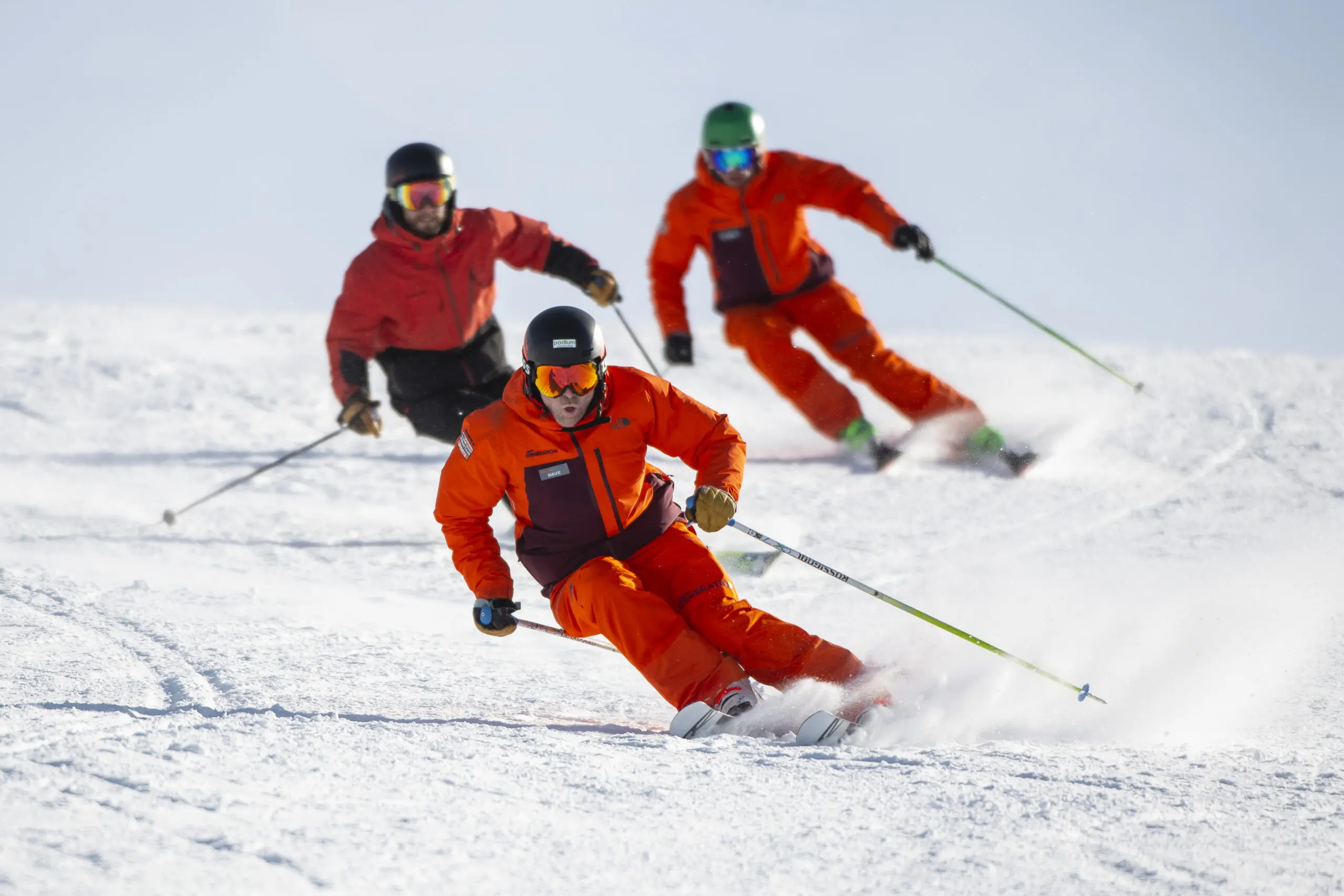
Top Tips
- Get in gates as much as you can. You need speed & agility for your euro test
- Train with like-minded trainees who push themselves
- The level 4 takes time and dedication, you need to be at the top of your game in skiing so can take people a few attempts. Which can cost a lot..! But you end up with an equivalent degree from the University of Edinburgh and the pay for Level 4’s in France and Switzerland is pretty high. Over 50 euros an hour so it’s an added bonus to living an amazing lifestyle.
- Aim to be in good physical condition – the L4 courses require you to ski in all strands to a very high level. Being in good physical shape will help you to train and participate in courses skiing at his level.
- Communicate and share information/advice with other instructors within the industry. Many are in a similar position and are all on the same wavelength – passionate about snowsports and teaching. It’s an amazing community to be part of – many instructors work together and help each other out all the time.
Our Training Courses
This BASI Level 4 Training programme has gone from strength to strength over recent years and is now totally unique. It encompasses everything you will need to pass your ISTD.
We don’t just dabble in a few hours here and there – so many trainees take this approach and it just doesn’t work. The ISTD is a huge jump up from ISIA and has a very low pass rate, so if you are committed to becoming a full BASI Level 4 ISTD instructor then you have to commit to training.
Verbier, Switzerland
- Working & training
- All season long (200hrs)
We’re looking for instructors with a passion for teaching and the drive to tackle the final hurdle to BASI Level 4. As part of our instructor team in Verbier, you’ll be crucial to building relationships in the resort and our client’s technique on the pistes.
The training in Verbier is run by Tom Waddington and Jon Ahlsen, who you can read about in our ‘Training in Verbier – The Coaches‘ blog.
St Anton, Austria
- Working & training
- All season-long (240hrs)
The reputation of this course and the team speaks for itself with the further development of the off-hill, mental and physical preparation for exams.
To find out more, sign up below
